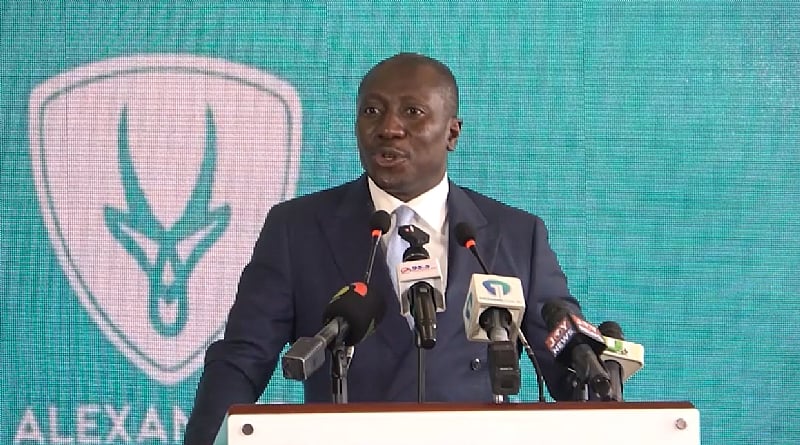Ghanaian politics, according to Minority Leader Alexander Afenyo-Markin, is trapped in a destructive cycle of political retribution, hindering national development and exacerbating critical issues like youth unemployment. This “eye-for-an-eye” mentality, where successive governments prioritize targeting their predecessors over fulfilling their promises to the electorate, has created a toxic political environment that stifles progress and undermines the nation’s potential. Afenyo-Markin argues that this obsession with discrediting political opponents distracts from the real work of governance, leaving crucial issues unaddressed and the population disillusioned. He believes that this politically motivated “witch-hunting” contributes to a stagnant political landscape where meaningful development takes a backseat to partisan squabbles.
The cycle of political retribution manifests in several ways. Firstly, it diverts valuable time, resources, and energy that could be used for policy implementation and national development. Investigations, inquiries, and legal battles consume government resources and attention, leaving little room for tackling pressing issues. Secondly, it creates an atmosphere of fear and distrust within the government and the civil service, discouraging innovation and proactive policymaking. Officials become more concerned about avoiding accusations of wrongdoing than taking risks to implement bold new initiatives. Thirdly, it fosters a culture of impunity and undermines accountability. When governments are more focused on targeting their predecessors than addressing their own shortcomings, it becomes difficult to hold anyone truly accountable for failures.
Afenyo-Markin’s critique extends to the current administration, which he challenges to demonstrate tangible results after nearly a year in office. He specifically highlights the persistent problem of youth unemployment, questioning whether the government has made any significant strides in addressing this critical issue. The lack of progress, he argues, underscores the negative consequences of prioritizing political point-scoring over practical solutions to real-world problems. This lack of tangible progress further fuels public cynicism and reinforces the perception that politicians are more concerned with their own interests than the welfare of the citizens they represent. He emphasizes that the electorate needs to see concrete evidence of the government’s commitment to addressing their needs, not just rhetoric and political maneuvering.
The Minority Leader’s call for change goes beyond simply criticizing the current political climate. He also challenges the youth, the future of Ghana, to rise above the petty partisan squabbling that dominates social media and engage in constructive civic action. He urges them to shift their focus from online attacks and insults to holding their leaders accountable through thoughtful policy analysis and active participation in the democratic process. This call for positive engagement underscores the vital role of the youth in shaping the future of Ghana and breaking the cycle of political retribution. He emphasizes the need for critical thinking, reasoned debate, and a commitment to the common good, rather than blindly following partisan lines.
Afenyo-Markin paints a concerning picture of Ghanaian politics, where the pursuit of political vengeance overshadows the needs of the nation, particularly its youth. The “I do you, you do me” mentality, as he describes it, not only hampers progress but also breeds a culture of distrust and cynicism. This situation demands a fundamental shift in the political landscape, moving away from retribution and towards a focus on constructive governance and collaborative problem-solving. This shift requires leadership that prioritizes national interests over partisan gains and a citizenry that actively participates in holding their leaders accountable. He calls for a change in political culture, one that emphasizes collaboration, accountability, and a genuine commitment to serving the people.
Ultimately, Afenyo-Markin’s message is a call for a more mature and responsible approach to politics in Ghana. He argues that the nation’s progress is being held hostage by a destructive cycle of political score-settling, and it’s time for a change. He challenges both the ruling government and the youth to rise above the petty squabbles and focus on the real issues facing the nation. His call for a shift in focus, from retribution to results, from online bickering to constructive engagement, is a plea for a more productive and prosperous future for Ghana. He advocates for a political environment where collaboration and constructive criticism are valued over personal attacks and political maneuvering.














